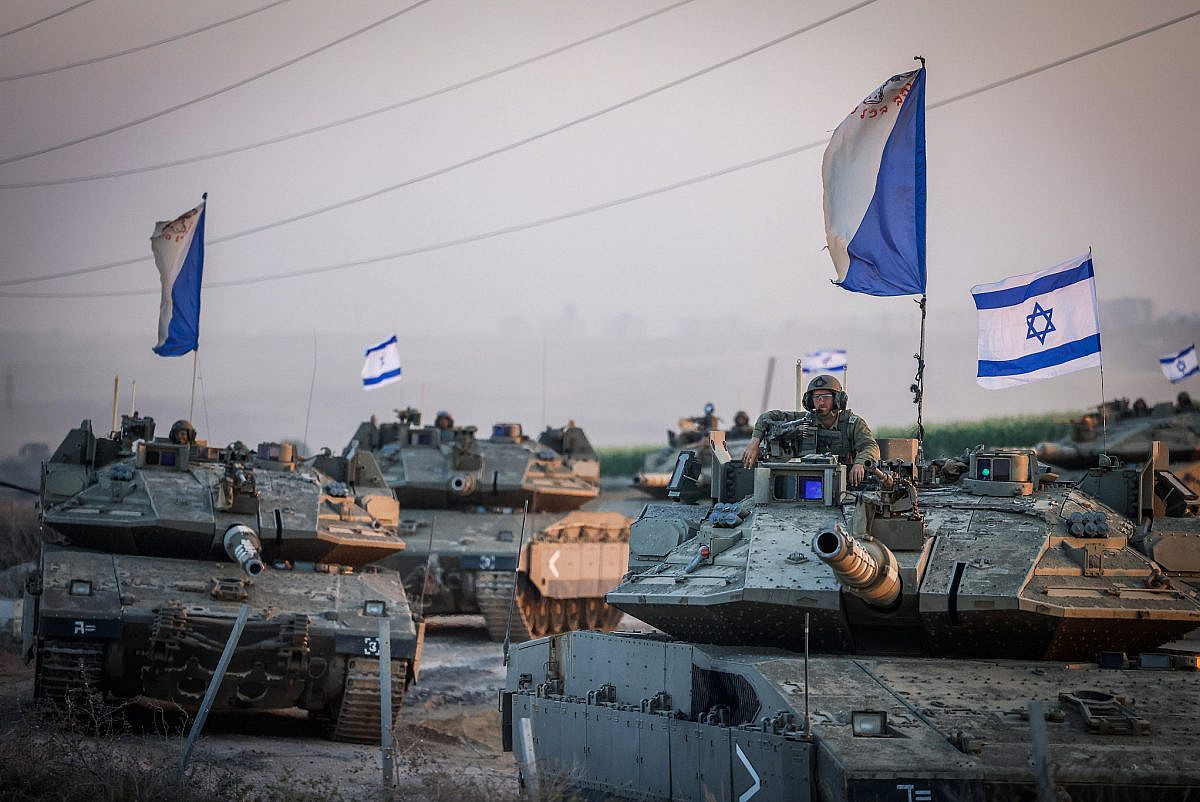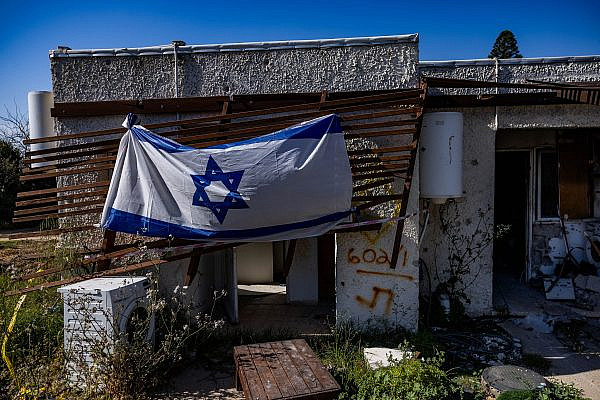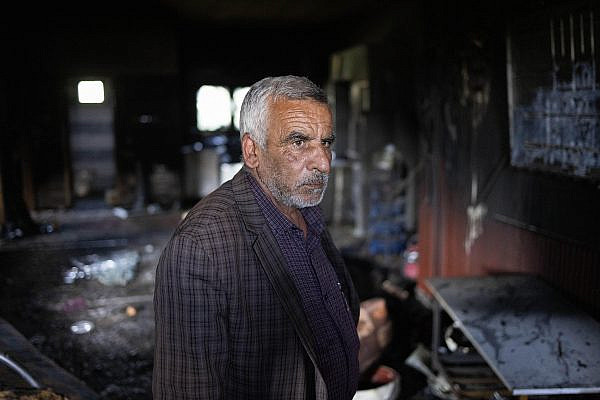This article was produced in partnership with Diaspora Alliance.
In a 60 Minutes interview less than a week after Hamas’ attack on southern Israel, which killed over 1,400 Israelis and saw over 200 more abducted to the Gaza Strip, U.S. President Joe Biden said that the Palestinian Islamist movement had “engaged in barbarism that is as consequential as the Holocaust.” The assessment joined a catalog of statements by Israeli, American, and other politicians and commentators who have explicitly linked the Oct. 7 massacres to the Nazi genocide, whether by citing the attacks as the biggest loss of Jewish life since World War II, or by portraying Hamas as Nazi-like or Nazi successors.
Biden’s antisemitism envoy, Deborah Lipstadt, for example, tweeted the day after the attack that it was “the most lethal assault against Jews since the Holocaust”; not long after, the U.S. Holocaust Museum put out a similar tweet. Israeli politicians have also helped drive this discourse. Prime Minister Benjamin Netanyahu told German Chancellor Olaf Scholz last week that “Hamas are the new Nazis … And just as the world united to defeat the Nazis … the world has to stand united behind Israel to defeat Hamas.” Netanyahu expressed similar sentiments to French President Emmanuel Macron on Tuesday.
The rhetorical value of casting your enemies as Nazis — which the Israeli right and its supporters frequently do when discussing Palestinians writ large — is the way it suggests, implicitly or explicitly, that there is only one logical, even moral, course of action: the complete elimination of the Nazi-designates and anyone deemed to be affiliated with them.
Thus is the current discourse awash with unabashed calls for genocide and ethnic cleansing, issued from a distressingly broad array of sources, and egged on by the idea that, in the words of a columnist in Israel’s most widely-read newspaper, “Hamas and the Gazans are one and the same.”
Indeed, the constant invocation of the Holocaust seems to have done little to sensitize those calling for Gaza’s destruction to its lessons. In addition to the demands for vengeful mass killings and the abundant references to Palestinians as “animals,” Nazi-like imagery has also been making the rounds among hasbarists on social media; in one drawing that could have come straight out of Der Stürmer, an IDF boot is pictured about to step on a cockroach with the head of a Hamas fighter.
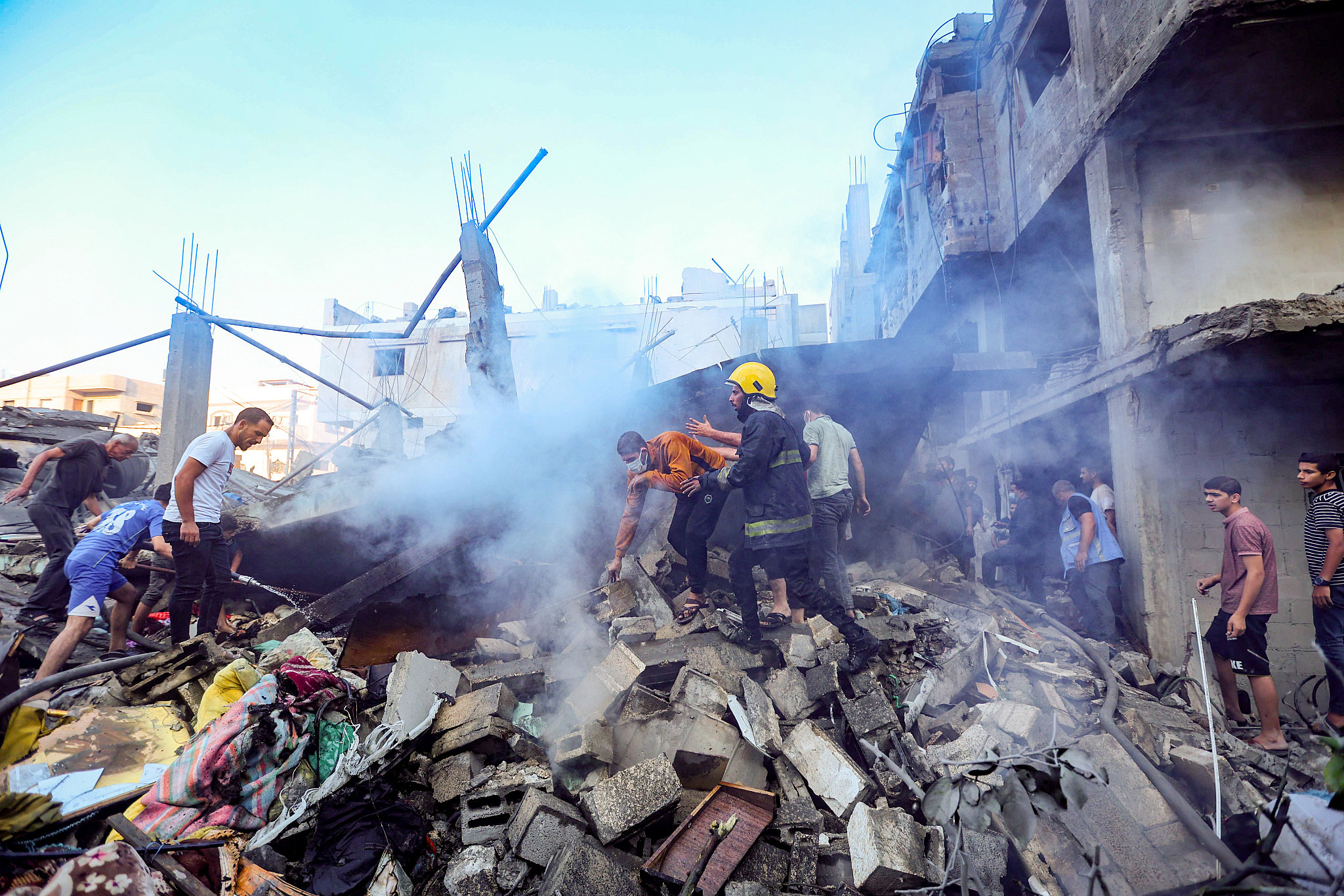
The irony is transparent and grotesque: the very kind of obscene propaganda that helped fuel unimaginable atrocities is being adopted to, ostensibly, ward off a repetition of that same history — and to justify ongoing ethnic mass killing and collective punishment.
It is cruel, at a time when there is a worrying depletion of knowledge about the Holocaust, to witness Holocaust memory being applied as a double-edged sword. What should be a universalist set of lessons applied to atrocities everywhere is being warped to validate violent, ethnonationalist objectives. As the hundreds of Jewish demonstrators and allies who filled the U.S. Capitol last week to protest the Gaza war stressed, “never again means never again for anyone.”
Indeed, if the legacy of the Holocaust is interpreted to present Israel with carte blanche to cage, bomb, starve, dehydrate, and otherwise exert necropolitical power over the 2.3 million Palestinians in Gaza — almost half of them children — then “never again” does not merely ring hollow. It becomes a call for unchecked violence, a war cry in an eliminationist campaign of retaliation.
This “Holocaustization” of what is happening in Israel-Palestine deposits all of us — Jews, Palestinians, those in the region and in the diaspora — on a dangerous precipice. To operate within that framework, according to its internal logic, is to condemn us to a zero-sum war whose terms are clear and devastating: a conflict that can only ever be resolved by the annihilation of one side or the other. It is a recipe for perpetual bloodshed — an exhortation, in the words of Netanyahu, to “live forever by the sword.”
One does not need to look far to find evidence of this mentality creeping into wider acceptance. The U.S. State Department has instructed its diplomats to avoid using words such as “ceasefire” or “de-escalation.” A venerated, 122-year-old Jewish group in Boston has just been effectively forced out of the city’s umbrella Jewish organization after participating in a protest calling for a ceasefire. In a war that has been retrofitted onto a Holocaust template, a plea to stop further killing is now read as moral failure.
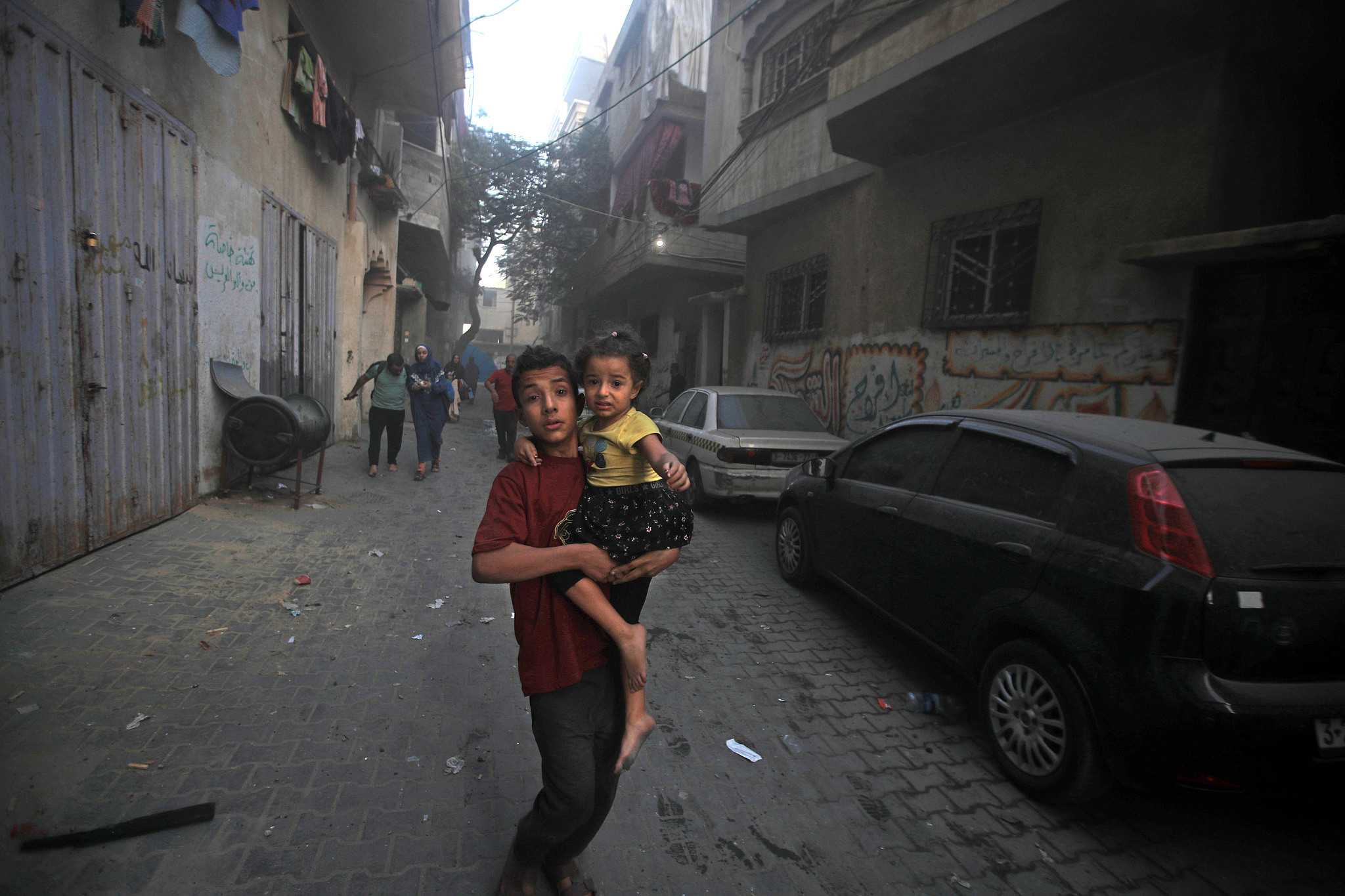
What, then, is the endgame here? How much ruination in Gaza, which is spreading to the West Bank, is deemed necessary? And even once the mass slaughter ends, what then? As long as there is no political solution — an option that the Holocaust framing renders impossible — catastrophic violence will persist. And it will, as recent history has shown, get much worse.
It is true, as Adam Shatz noted in the London Review of Books, that there is more than mere cynicism at play in the Holocaust comparisons proliferating around us, not least by Israelis and diaspora Jews themselves; as he rightly points out, the Hamas attacks lit up “the rawest part of [Jews’] psyche: the fear of annihilation.” The activation of this fear is now being exacerbated by ominous reports of antisemitic attacks across multiple countries, from interpersonal violence to synagogues being attacked and even partly destroyed.
This acknowledgement, however, does not lessen the dangers of portraying the Israeli military as being locked in a fight to the death with an ultimate evil. Moreover, given the overwhelming asymmetry between Israeli and Palestinian military capabilities, and the fact that Israel is backed by a global superpower, there is only one side in this equation that is being threatened with potential genocide, and that is the Palestinians.
This in no way contradicts the fact that, as Hamas ruthlessly demonstrated on Oct. 7, Israeli Jews are increasingly paying a price for Israel’s ongoing abuses. As my colleagues Meron Rapoport and Amjad Iraqi wrote on +972 Magazine, the attacks definitively dispelled the illusion that Israel can forever subjugate, segregate, displace, and summarily execute Palestinians with minimal blowback. But as frightening and shocking as the Oct. 7 attacks were, they are not an indicator that Jews — in Israel or anywhere else — face mass, state-sanctioned violence in the way that Palestinians do and have done for decades.
Most read on +972
Palestinians, above all those in Gaza, are under very real threat of a second Nakba, to the extent that the Nakba ever ended. The echoes of 1948 are all around: over 7,000 Palestinians dead in three weeks of Israeli airstrikes and 1.4 million displaced; flattened neighborhoods and “tent cities”; talk of mass expulsions to the Sinai and the political jockeying over the fate of potential refugees. Here, history is indeed repeating itself. What’s more, just like Jewish communities around the world, Muslim communities, too, are facing an uptick in violent hate crimes.
There are thus two immediate issues at play: to end the bombardment of Gaza, and to secure the release of Israeli and other hostages held captive there. Invoking the Holocaust in the present dire circumstances does not bring those goals closer — it only pushes them further away. It may give the illusion of lending moral authority and clarity to the proceedings, but in a war that has killed more than 8,000 people and counting, such claims are misleading at best, and cynical at worst. Surely, with all the current discussion of the Holocaust, we might honor its legacy better than that.


